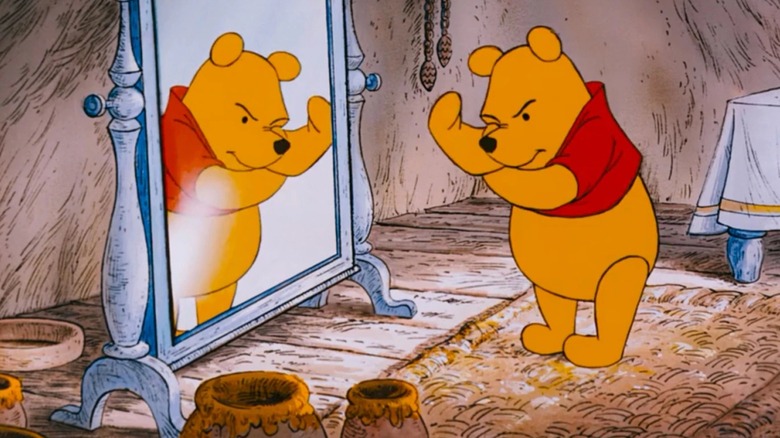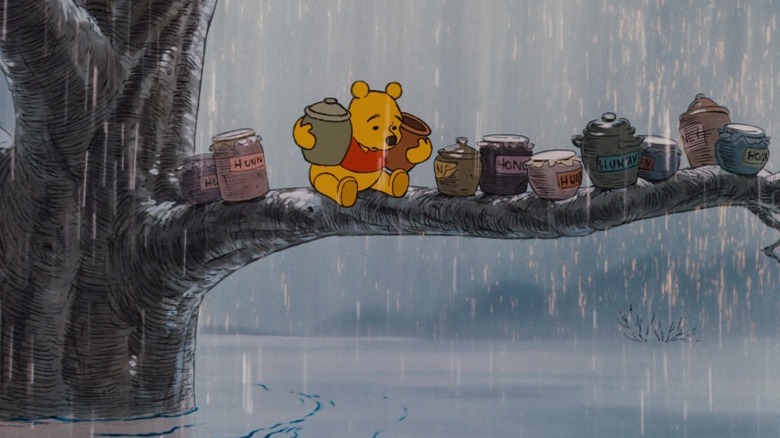A. A. Milne's Winnie The Pooh Is Back In The Public Domain, And Disney May Lose Their Exclusivity To The Character
Ah, January: a time for new beginnings, fresh starts, and a long list of characters we can now adapt in whatever way we see fit thanks to the public domain. In case you're unfamiliar, "public domain" is a term for a sort of creative free-for-all, the space where titles, works, and characters can live on once their original creators' intellectual property rights have expired. This year, per Rolling Stone, a familiar face is entering the public domain: Winnie-the-Pooh.
A.A. Milne's beloved stuffed bear has been a hallmark of the Disney channel, and, well, Hallmark stores for a long time now. The author first introduced the loveable bear in 1926 in a book simply titled "Winnie-the-Pooh." According to USA Today, in 1961, Disney acquired the motion picture rights to Pooh from Milne's estate, leading to the familiar honey-colored cartoon bear we know today.
We May Get New Takes on the Beloved Bear
The public domain allows works to be shared freely without concern about copyright law, which can make them more accessible and open up room for fresh interpretations. This is why we're able to see Baz Lurhmann do "Romeo + Juliet" with guns, or witness Nicolas Cage's upcoming take on "Dracula." It's also why Disney has been able to make its own definitive and lucrative retellings of Grimms' fairy tales.
Pooh Bear in the public domain is a good thing, but as always when the calendar page turns, we can't help but wonder how wild creators will get with him. Will The CW co-opt the story and add it into their line-up of angsty, outrageous dramas pulled from popular, previously squeaky-clean titles? Will The Hundred Acre Wood end up down the street from Riverdale? Maybe not, but it's fun to imagine how the story may evolve now that it appears to be, in some part, free from Disney.
USA Today reports that most Disney characters are trademarked under something called "The Mickey Mouse Protection Act," but Milne's original stories aren't. Disney can still sue people for using their unique version of Winnie the Pooh, or any characters from the Disney canon that Milne didn't create. The "Winnie the Pooh" franchise, whose last official theatrical release was 2018's live-action "Christopher Robin" film, has reportedly earned $80 billion to date. I can't imagine Disney would want to part with such a big paycheck, but USA Today reports that legal experts think any corporation-driven amendment to Pooh's new status as a public domain would be "a long shot."
Before you start raising funding for the bloody Winnie the Pooh action movie you just thought of, it's worth noting that the character of Tigger wasn't introduced in Milne's works until 1928, so the bouncy orange guy is still signed with Disney for a few more years. Thanks to 2022's new public domain drop, you can, however, now use elements from Hemingway's "The Sun Also Rises" and Agatha Christie's "The Murder of Roger Ackroyd" in whatever you're thinking of making. Get creative with it, I'm sure it'll be great.

